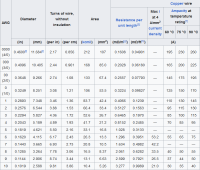herstaticcity
New Member
I'm trying to place orders for everything listed on Will's "The Classic 400W Solar Package" page (see here: https://www.mobile-solarpower.com/the-classic-400-watt-rvs-vans-buses.html) and I don't understand which wires to get.
- Under Wires and Adapters he says "Battery to Battery cables" - "any size battery (be sure to select the right size for your battery bank)." HELP! Under batteries I chose on the right side "Buy 2+ of these: a 100 amp hour lithium battery - 100Ah SOK battery" so exactly which battery to battery cable do I buy from his link on Amazon? Is the 2AWG in 5/16in lugs in 1ft ok (seems to be preselected)?
-Then under Main Component Hookup wire/connectors/heatshrink he says "click a link below and choose your wire gauge" and there's links to 8, 6, 4, 2, 1/0, 2/0, 4/0. Which do I need to buy for this kit? I chose the 2200w pure sine wave inverter and the 100ah sok batteries. Thank you
Sorry I am very much a beginner to this and don't understand much electrical. Once I buy everything my boyfriend's brother will help us install it as he has done a solar system before. We want to be off grid in a class C camper this summer. Thank you in advance!!!
- Under Wires and Adapters he says "Battery to Battery cables" - "any size battery (be sure to select the right size for your battery bank)." HELP! Under batteries I chose on the right side "Buy 2+ of these: a 100 amp hour lithium battery - 100Ah SOK battery" so exactly which battery to battery cable do I buy from his link on Amazon? Is the 2AWG in 5/16in lugs in 1ft ok (seems to be preselected)?
-Then under Main Component Hookup wire/connectors/heatshrink he says "click a link below and choose your wire gauge" and there's links to 8, 6, 4, 2, 1/0, 2/0, 4/0. Which do I need to buy for this kit? I chose the 2200w pure sine wave inverter and the 100ah sok batteries. Thank you
Sorry I am very much a beginner to this and don't understand much electrical. Once I buy everything my boyfriend's brother will help us install it as he has done a solar system before. We want to be off grid in a class C camper this summer. Thank you in advance!!!



